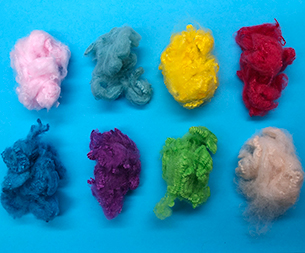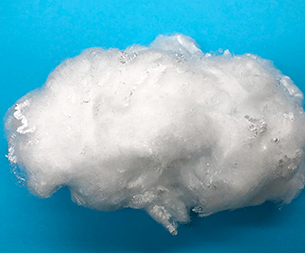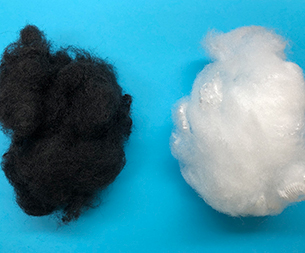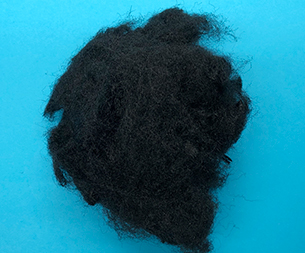The most remarkable feature of polypropylene staple fibers is undoubtedly their lightweight texture. Its density is only 0.9 to 0.92 grams per cubic centimeter, which is extremely light among common chemical fibers. This advantage enables polypropylene products to significantly reduce weight while maintaining the same coverage area, providing an ideal choice for the manufacturing of lightweight clothing, non-woven fabrics and other products.
In addition to being lightweight, polypropylene staple fibers also possess outstanding strength and wear resistance. Its strength remains stable in both dry and wet states. It has excellent wear resistance and resilience, and can maintain its original strength even in a humid environment. This characteristic enables polypropylene products to shine brightly in fields with extremely high wear resistance requirements such as fishing nets and ropes, becoming indispensable materials in these areas.
In terms of moisture permeability and breathability, polypropylene staple fibers also perform well. It has excellent moisture conductivity and can quickly transfer moisture from the skin to the outer layer, keeping the skin dry and comfortable. Meanwhile, it has excellent breathability, which helps maintain the air circulation inside the clothing and enhances the wearing experience. These characteristics have made polypropylene products widely popular in the field of close-fitting clothing such as sportswear and underwear.
In addition, polypropylene staple fibers also have excellent chemical corrosion resistance. Except for concentrated nitric acid and concentrated caustic soda, it shows good resistance to most chemical substances. This characteristic makes it have broad application prospects in fields such as filter materials and packaging materials. Meanwhile, polypropylene staple fibers also have excellent electrical insulation and warmth retention properties, and are suitable for making electric blanket fabrics, winter clothing, etc.
However, polypropylene staple fibers also face the challenge of static electricity during the processing. Due to its almost zero moisture regain, low moisture absorption rate and poor electrical conductivity, electrostatic effects are prone to occur between fibers. To this end, the industry has effectively addressed this issue by taking measures such as adding antistatic agents and blending fibers with different positive and negative frictional electrification properties.
Jiangsu Haibang New Materials Co., Ltd., formerly known as Taizhou Hailun Chemical Fiber Co., Ltd., is a technical chemical fiber enterprise specializing in the research, development, production and sales of polypropylene staple fiber. The company has two factories in the north and south in Taizhou City, Jiangsu Province (18 kilometers apart), covering a total area of more than 100,000 square meters, including 50,000 square meters of factory buildings and over 10,000 square meters of office buildings. The company has 9 advanced fully automatic polypropylene staple fiber production lines with an annual designed production capacity of 90,000 tons. The company has established a complete polypropylene staple fiber testing laboratory, has a full set of fiber testing instruments, and has the ability to develop new polypropylene staple fiber products. The company produces a full range of polypropylene staple fiber products, with main applications including the automotive industry, sofa fabrics (cool cloth), geotextiles, liquid filtration, textiles, sanitary materials, carpets and other industries. The company has passed ISO9001:2015 international quality system certification.
- The performance characteristics
- The "bottoming-out and recovery"
- An Overview of the Characteristi
- Taking over the islands and impo
- Analysis of the Characteristics
- Why has the textile trade betwee
- Characteristics of Polypropylene
- Analysis of the Industry Applica
- Jiangsu Haibang New Material Co.
- China's textile industry is at a
- Markets
- Automotive Products
- Nonwoven Lining
- Geosynthetics
- Liquid Filtration
- Apparel and Textiles
- Hygiene Products
- Building and Construction
- Other Markets
- Contact Us
- Contact Haibang





